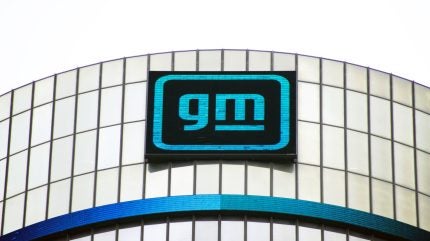
General Motors (GM) is set to incur a writedown and restructuring charges exceeding $5bn in relation to its underperforming Chinese joint ventures (JVs).
GM revealed in a recent regulatory filing that it will reduce the value of its equity stakes in the ventures by between $2.6bn and $2.9bn.

Discover B2B Marketing That Performs
Combine business intelligence and editorial excellence to reach engaged professionals across 36 leading media platforms.
This adjustment will be reflected in the company’s financial results for the next year.
In addition, GM is preparing for restructuring charges amounting to $2.7bn, with the majority expected to be recorded in the fourth quarter.
The company’s board has identified these non-cash charges as necessary due to “certain restructuring actions” with the joint venture, which have yet to be detailed publicly.
GM’s filing did not include specifics about the restructuring but did mention it involves “plant closures and portfolio optimisation.”
GM emphasised its commitment to efficiency and discipline in a statement to the Securities and Exchange Commission (SEC).
“We are focused on capital efficiency and cost discipline and have been working with SGM to turn around the business in China in order to be sustainable and profitable in the market,” the filing stated.
The company also expressed optimism about the future: “We are close to finalising our restructuring plan with our partner, and we expect our results in China in 2025 to show year-over-year improvement.”
The non-cash charges will have an impact on the company’s net income but will not affect adjusted pretax earnings, the company noted.
GM has historically held a 50% stake in its joint venture with SAIC General Motors and maintains other joint ventures, including a finance arm. These ventures were once a stable source of equity income for GM but have recently reported losses.
In August 2023, General Motors’ China joint venture, SAIC-GM-Wuling (SGMW) launched an electric hatchback with a price tag starting at 95,800 RMB ($13.2k).
It is expected that the Baojun Yun Duo (Cloud) will compete with BYD’s Dolphin and Volkswagen’s ID.3. SGMW sells vehicles under the Wuling and Baojun brand names.
Automakers have been cutting their prices in China amid intense EV competition, including VW, which slashed its ID.3 to 125,900 RMB (around $17,500) in 2023.






